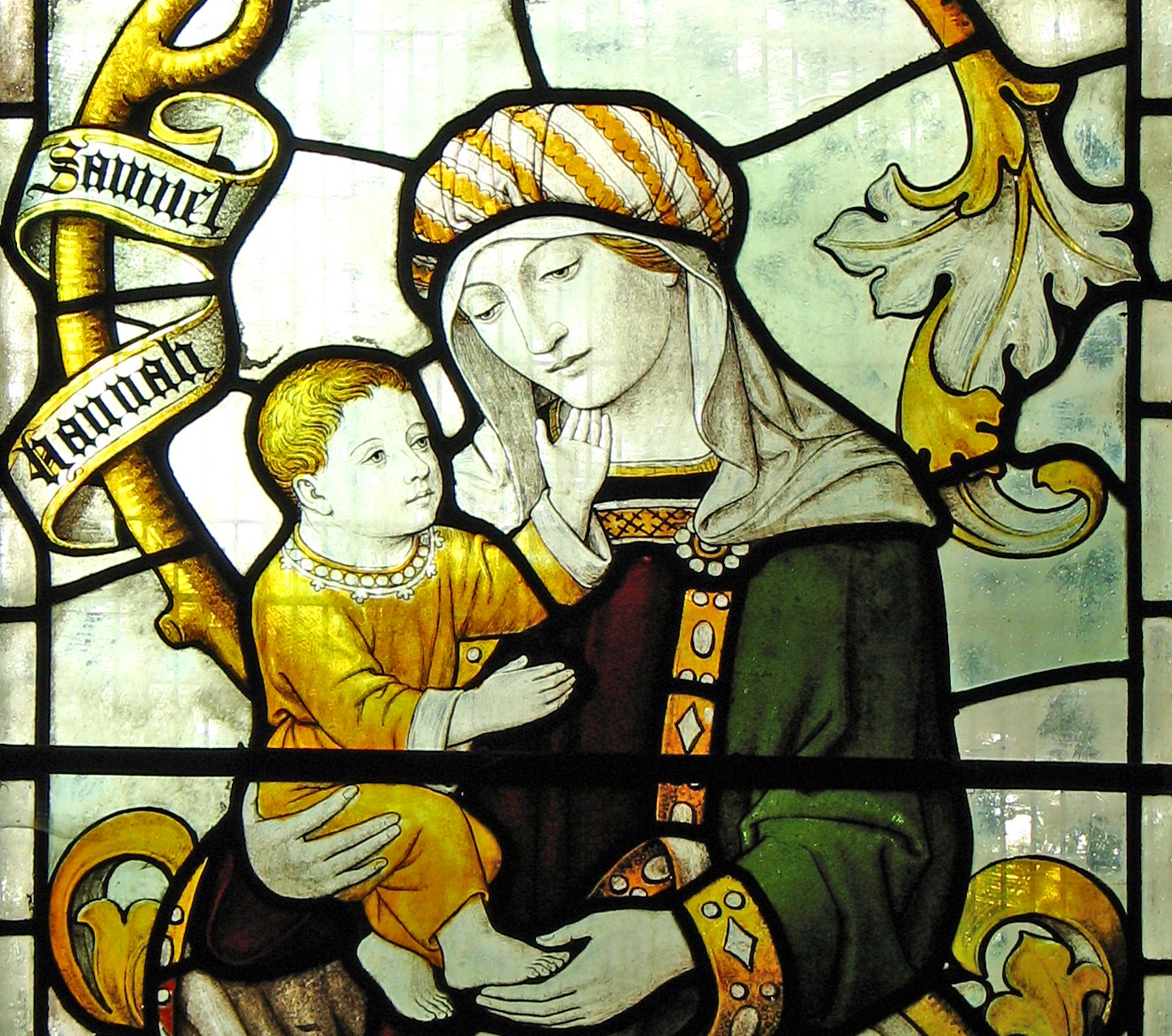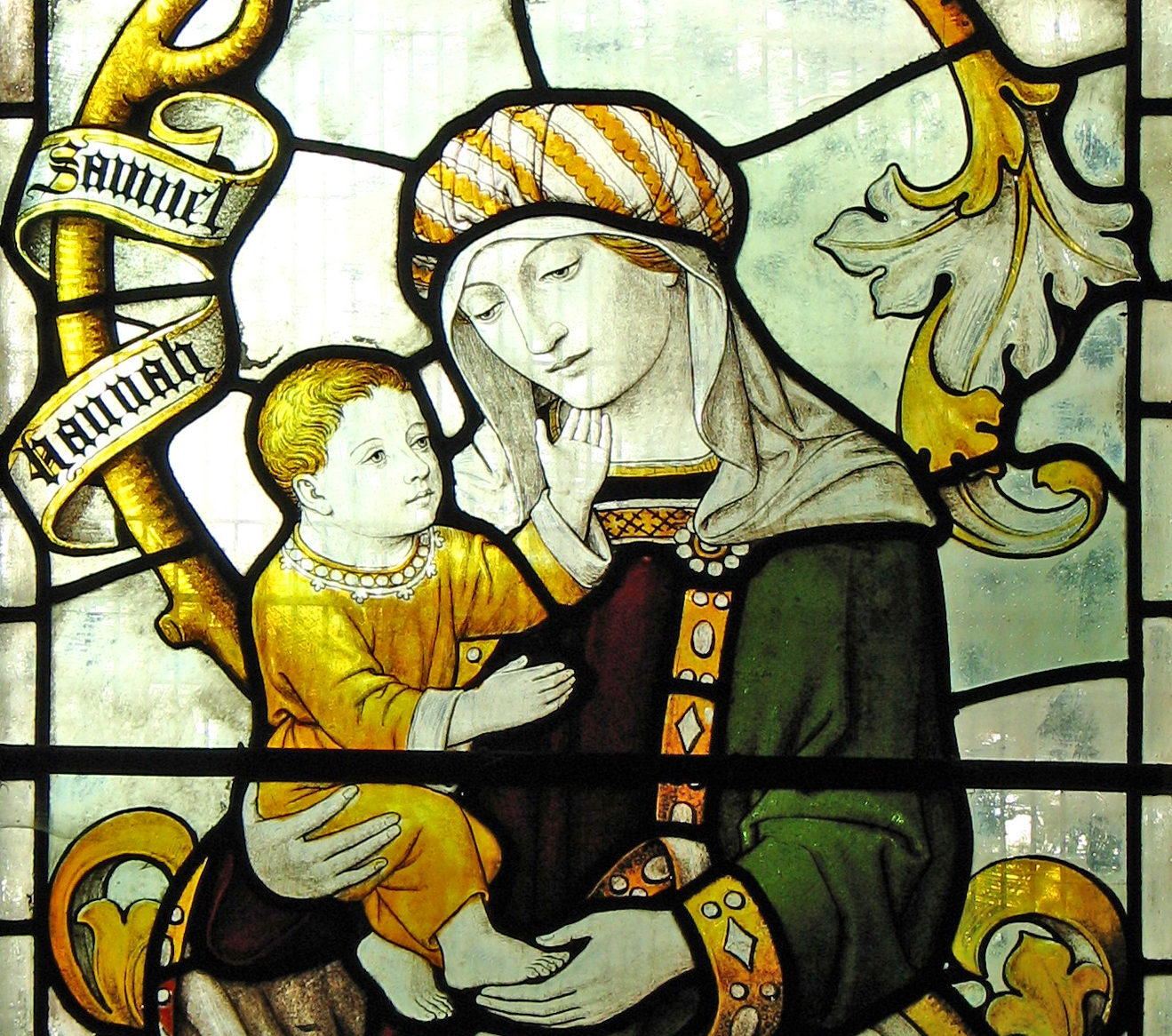撒慕爾紀上 1:9-20
亞納在史羅吃喝完以後,就起來走到上主面前;那時司祭厄里正對著上主聖殿門口,坐在椅子上。亞納心靈愁苦,哀求上主,不斷痛哭流淚;且許願說:「萬軍的上主,若你垂顧你婢女的痛苦,記念我,不忘你的婢女,賜你婢女生一個男孩,我就將他一生獻於上主,一輩子不給他剃頭。」
亞納在上主面前祈禱很久,厄里曾注意到她的嘴脣;亞納只是心內訴說,嘴脣微動,卻聽不到她的聲音,厄里卻以為她喝醉了,就對她說:「你要醉到幾時?消消你身上的酒氣吧!」亞納答說:「我主!你想錯了;我是個遭遇不幸的女人,清酒烈酒總不沾脣;我是在上主面前傾吐我的心意。望你不要以為你的婢女是個壞人,因為我由於極度的痛苦悲傷,才一直傾訴到現在。」厄里回答她說:「你平安去吧!願以色列的天主賜給你求他的事。」她答說:「願你的婢女在你眼內蒙恩。」
這女人就回了旅舍,吃完飯,不再愁容滿面。次日清早,她和丈夫起來朝拜了上主,就回了辣瑪本家。厄耳卡納認識了妻子亞納,上主也記念了她,亞納就懷了孕,生了一個兒子,給他起名叫撒慕爾,說:「因為是我向上主求得了他。」
馬爾谷福音 1:21-28
那時候,耶穌和他的門徒進了葛法翁;一到安息日,耶穌就進入會堂教訓人。人都驚奇他的教訓,因為他教訓他們正像有權威似的,不像經師們一樣。當時,在他們的會堂裏,正有一個附邪魔的人。他喊叫,說:「納匝肋人耶穌!我們與你有什麼相干?你竟來毀滅我們!我知道你是誰,你是天主的聖者。」耶穌叱責他說:「不要作聲!從他身上出去!」邪魔使那人拘攣了一陣,大喊一聲,就從他身上出去了。眾人大為驚愕,以致彼此詢問說:「這是怎麼一回事?這是新的教訓,並具有權威;他連給邪魔出命,邪魔也聽從他。」他的聲譽遂即傳遍了加里肋亞附近各處。
亞納與丈夫結婚多年仍然不育,飽受丈夫另一妻子的羞辱,於是把心中的憂愁都向上主傾訴,並哀求祂為她解決她的不幸。當聽見厄里安慰她平安去後,她便不再愁容滿面,心中回復了平安。後來上主記念了她,亞納就懷了孕,生了一個兒子,取名撒慕爾。
上主是憐憫人的天主,當我們在困苦無助當中時,會在心中埋怨或嫉妒其他人,還是向祂坦然哭求,把心中的希望交托給祂?當祈禱後,又有否因為充滿信德而內心回復平安?
亞納的兒子撒慕爾的誕生可說是因天主的親自介入;他後來身兼以色列人的民長與先知重任,可見天主給了他一個特別的計劃。也許我們的出生並沒有如他的一樣充滿傳奇,但不要忽視我們每個人的生命都是天主給我們父母的一個珍貴的禮物。就讓我們時刻感謝這份恩寵,也同時積極尋找並活出天主給我們生命的召叫和意義。
這篇默想由生命恩泉文摘編輯小組撰寫,內容以下列文章為根據:
Commentaries on the daily readings by Sacred Space
彌撒福音釋義 - 常年期第一週星期二
Tuesday of the First week in Ordinary Time (Liturgical Year A)
1 Samuel 1:9-20
Hannah rose after a meal at Shiloh, and presented herself before the Lord; at the time, Eli the priest was sitting on a chair near the doorpost of the Lord's temple. In her bitterness she prayed to the Lord, weeping copiously, and she made a vow, promising: “O Lord of hosts, if you look with pity on the misery of your handmaid, if you remember me and do not forget me, if you give your handmaid a male child, I will give him to the Lord for as long as he lives; neither wine nor liquor shall he drink, and no razor shall ever touch his head.” As she remained long at prayer before the Lord, Eli watched her mouth, for Hannah was praying silently; though her lips were moving, her voice could not be heard. Eli, thinking her drunk, said to her, “How long will you make a drunken show of yourself? Sober up from your wine!” “It isn't that, my lord,” Hannah answered. “I am an unhappy woman. I have had neither wine nor liquor; I was only pouring out my troubles to the Lord. Do not think your handmaid a ne'er-do-well; my prayer has been prompted by my deep sorrow and misery.”
Eli said, “Go in peace, and may the God of Israel grant you what you have asked of him.” She replied, “Think kindly of your maidservant,” and left. She went to her quarters, ate and drank with her husband, and no longer appeared downcast. Early the next morning they worshiped before the Lord, and then returned to their home in Ramah.
When Elkanah had relations with his wife Hannah, the Lord remembered her. She conceived, and at the end of her term bore a son whom she called Samuel, since she had asked the Lord for him.
Mark 1:21-28
Jesus came to Capernaum with his followers, and on the sabbath he entered the synagogue and taught. The people were astonished at his teaching, for he taught them as one having authority and not as the scribes. In their synagogue was a man with an unclean spirit; he cried out, “What have you to do with us, Jesus of Nazareth? Have you come to destroy us? I know who you are–the Holy One of God!” Jesus rebuked him and said, “Quiet! Come out of him!” The unclean spirit convulsed him and with a loud cry came out of him. All were amazed and asked one another, “What is this? A new teaching with authority. He commands even the unclean spirits and they obey him.” His fame spread everywhere throughout the whole region of Galilee.
Hannah had been married for many years but remained barren, and she suffered constantly from the humiliation of her rival -- her husband's other wife who had many children -- which upset her year after year. In the Lord's temple she wept and prayed to the Lord, begging the Lord to help end her misery. After hearing Eli's comfort, she left and was no longer depressed. Later, the Lord remembered her, and Hannah became pregnant and gave birth to a son, whom she named Samuel.
This Old Testament passage reminds us that God is forever merciful and He listens to our prayers. When we are trapped in hardship, do we complain, feel bitter, and envy others, or do we pray to Him with a hopeful heart that He will bless us with what He thinks is best for us?
The birth of Samuel was intervened by God, and such intervention usually signified that God has a special plan for this person, such as in the cases of Isaac, John the Baptist and Jesus. Though our birth might not be as dramatic as Samuel's, and we are probably not called to be a major prophet like him, we should not undermine the fact that each of us is God's special gift to our parents, and for each of us God has a special plan. Let us always be mindful of this grace, and actively seek and live out our unique vocation and meaning in life.
This reflection is prepared by the FLL Inspire editorial team as a digest of the following articles:
Commentaries on the daily readings by Sacred Space
彌撒福音釋義 - 常年期第一週星期二

